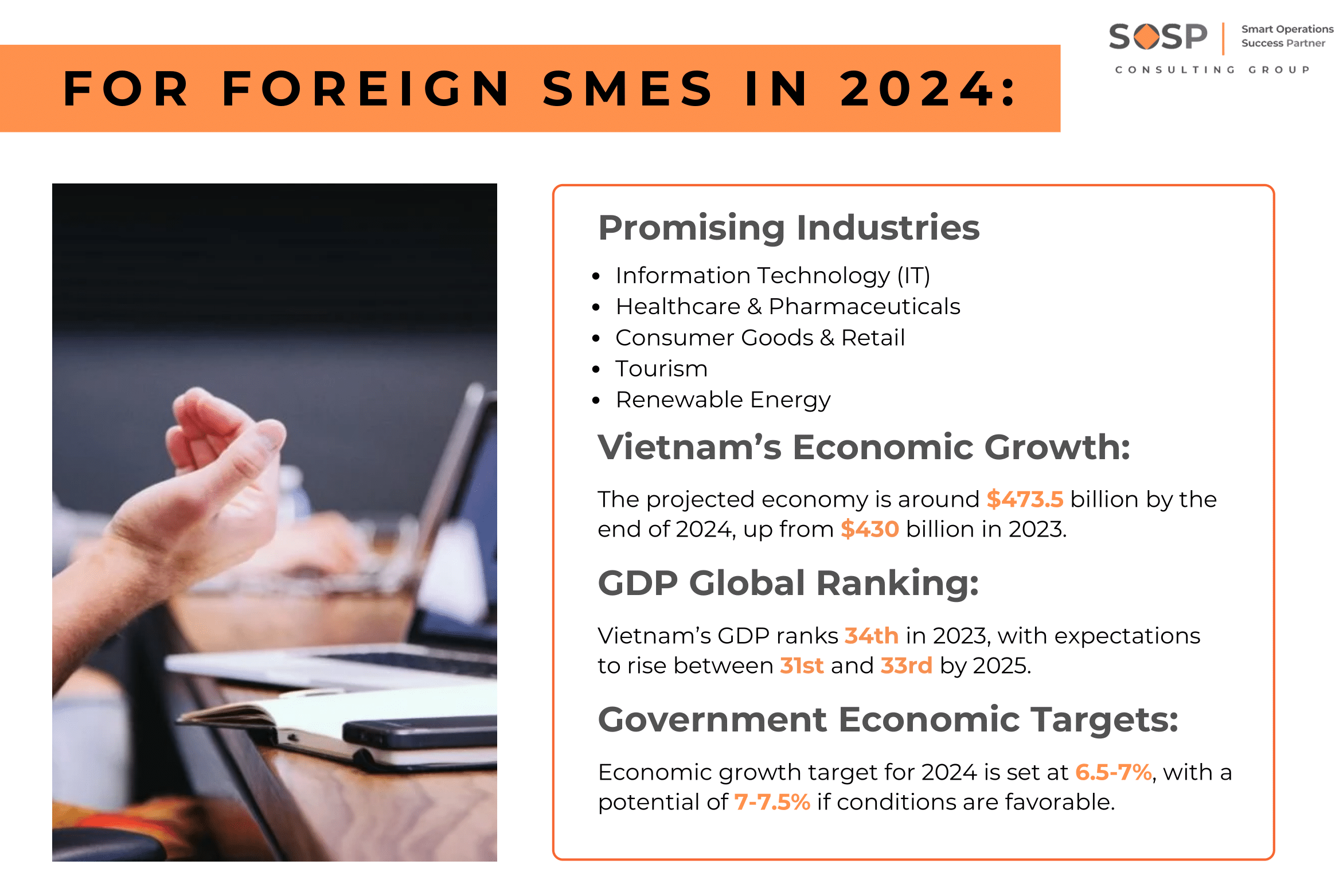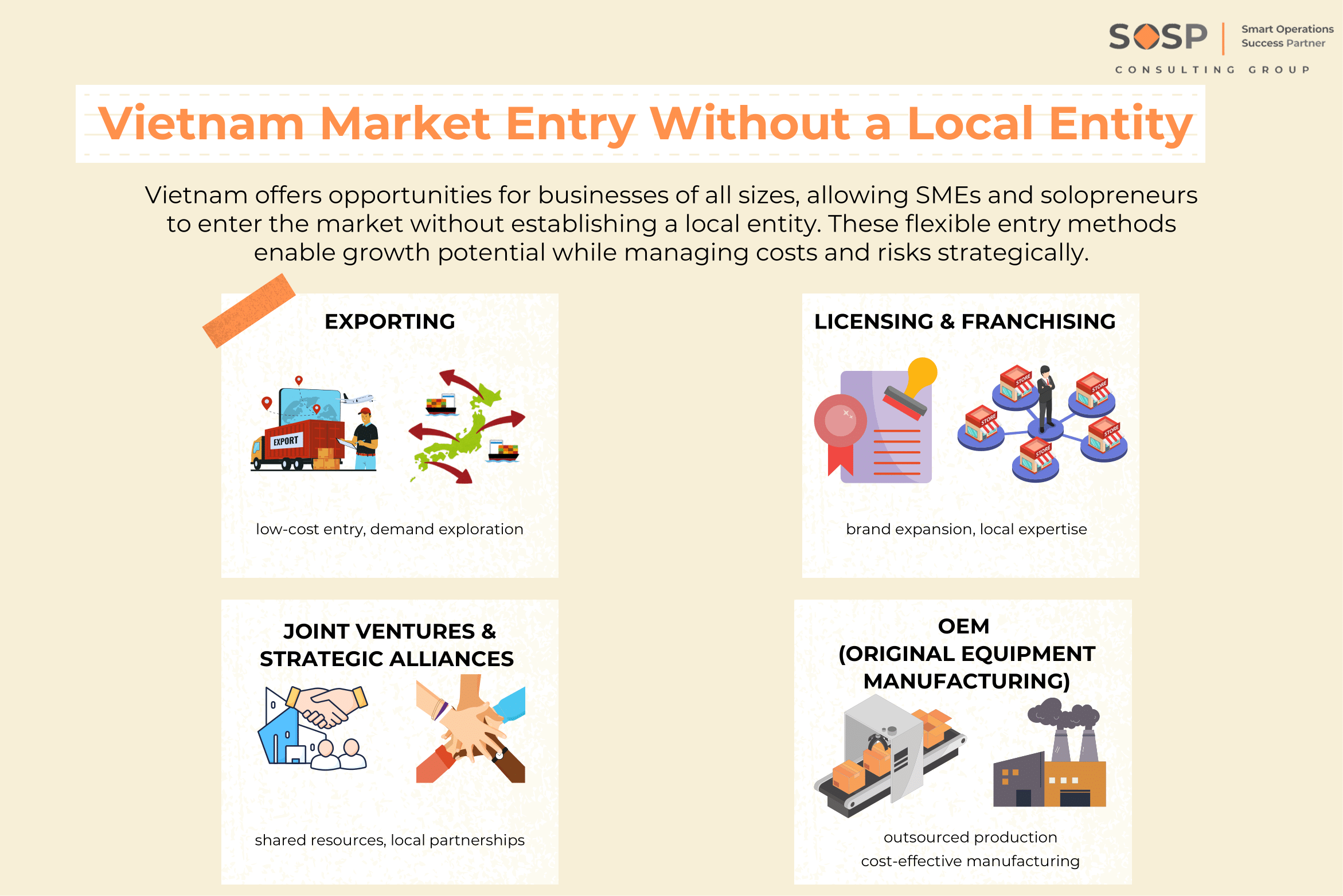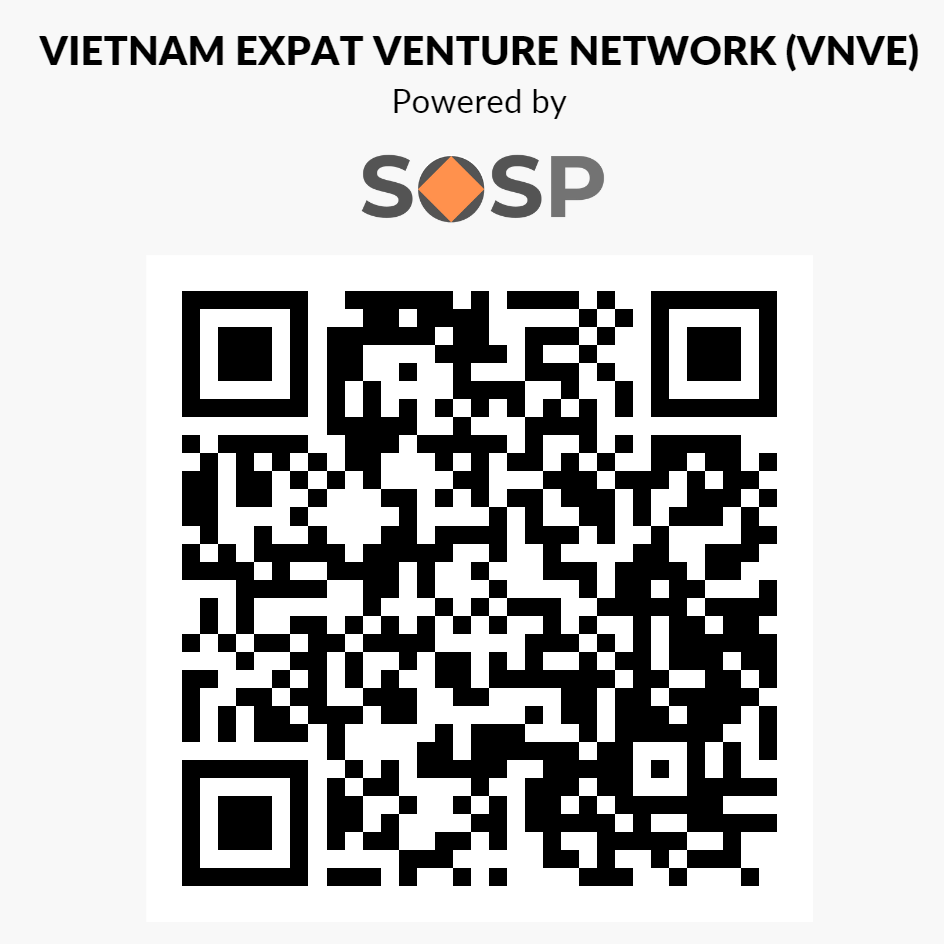Enter Vietnam market without establishing a legal entity?
Thinking about expanding your brand presence or outsourcing production in Vietnam? Avoid common pitfalls and gain strategic insights for navigating this dynamic market.
In this article, we explore strategies for entering Vietnam without establishing a local entity. You’ll find an overview of industries best suited for this approach, effective entry methods, and an understanding of the benefits and challenges of this flexible, low-investment pathway during the early stages of market entry.
Why Vietnam?
Vietnam is gaining attention as a favorable destination for foreign direct investment (FDI) in 2024, driven by steady economic growth and ongoing efforts to stabilize the macroeconomic landscape. According to the Vietnam Investment Review (VIR) under the Ministry of Planning and Investment, the government recently reported to the National Assembly that the economy is projected to reach approximately $473.5 billion by the end of this year, an increase from $430 billion in 2023. The report indicates that Vietnam is in a recovery phase, restoring growth momentum to levels seen before the COVID-19 pandemic. The government emphasized the importance of maintaining macroeconomic stability, controlling inflation, ensuring major economic balances, and addressing budget overspending, which positions the country for continued growth.
Looking ahead, the government has set a target for economic growth in 2024 at around 6.5-7%, with an optimistic goal of 7-7.5%, should domestic and international conditions improve. By the end of 2023, the World Bank ranks Vietnam's GDP at 34th globally, with expectations of it climbing to between 31st and 33rd by 2025. These projections are part of broader economic goals aimed at enhancing Vietnam's role in the global economy.
This growth environment, combined with strategic targets and a focused policy approach, contributes to Vietnam's appeal as an FDI destination. The country's economic trajectory offers various opportunities for investors, supported by government policies that aim for stable, long-term development. Businesses seeking investment avenues in Asia can leverage Vietnam's expanding economic scale and consistent growth targets to explore potential market engagement.

Entry Strategies Without Establishing an Entity: How SMEs and Solopreneurs Can Enter the Vietnamese Market
Vietnam offers opportunities for organizations of all sizes. For SMEs and solopreneurs, establishing a full local entity isn’t always required to achieve success in the market. Here are several effective methods to enter the Vietnamese market without setting up a local entity, enabling businesses to explore growth potential with a strategic approach while keeping costs and risks manageable.
Exporting
SMEs can export goods directly to Vietnam from their home country. This straightforward approach involves working with Vietnamese distributors or leveraging e-commerce platforms to reach consumers without setting up local infrastructure. Exporting enables businesses to build brand awareness and gauge demand, all while keeping operational expenses to a minimum.
Licensing and Franchising
Licensing or franchising allows a foreign business to grant local partners the right to use its brand, product, or technology in Vietnam. This setup enables SMEs to expand their presence by tapping into local expertise and resources without the complexities of managing day-to-day operations. For instance, a restaurant chain may franchise its brand to a Vietnamese entrepreneur who manages local locations.
Joint Ventures and Strategic Alliances
Partnering with Vietnamese companies through joint ventures or strategic alliances provides a collaborative way to enter the market. This model allows SMEs to share resources, insights, and networks with local partners, minimizing financial risk and offering shared operational control. It is a suitable option for businesses seeking more involvement while lacking local market experience.
Original Equipment Manufacturing (OEM)
In an OEM arrangement, an SME can outsource production to Vietnamese factories that manufacture products under strict quality guidelines while retaining intellectual property rights. This approach is particularly beneficial for industries such as consumer electronics or fashion, allowing the SME to maintain ownership over design and brand while leveraging Vietnam's cost-effective manufacturing capabilities.
These entry strategies give SMEs and solopreneurs a range of flexible options for penetrating the Vietnamese market without a physical presence, ensuring they can expand and adapt efficiently based on local market dynamics.

Vietnam Business Opportunities for Foreign SMEs
In 2024, foreign SMEs looking to enter the Vietnamese market without establishing local entities can explore several promising industries with relatively low upfront investment requirements. Here are some key industries conducive to foreign investment:
- Information Technology (IT): Vietnam is rapidly becoming a hub for IT services and digital transformation. With a youthful population and increasing internet accessibility, there are significant opportunities in e-commerce, fintech, health tech, and edtech. The government's support for technological innovation further enhances the sector's attractiveness.
- Healthcare and Pharmaceuticals: As the population ages and the middle class expands, there is a growing demand for quality healthcare services and pharmaceutical products. Investment opportunities exist in hospitals, medical equipment manufacturing, and telemedicine, appealing to foreign investors due to increasing health awareness and ongoing healthcare system improvements.
- Consumer Goods and Retail: With a rising middle-income group and evolving consumer habits, the retail sector presents lucrative opportunities. Foreign investors can explore avenues in supermarkets, convenience stores, fashion brands, and fast-moving consumer goods, driven by shifts in consumer behavior and increasing purchasing power.
- Tourism: Despite challenges from the pandemic, Vietnam's tourism industry is rebounding and remains a significant driver of economic growth. The government aims to attract millions of international tourists, creating opportunities for investment in hotels, resorts, and travel services.
- Renewable Energy: As the global focus shifts toward sustainable energy, Vietnam is seeing increased investment in renewable energy sectors, including solar and wind power. This industry presents opportunities for foreign SMEs to participate in Vietnam’s energy transition.
References: from various sources
---
Ready to uncover the market potential for your products or services in Vietnam?
Connect with SOSP Consulting Group for targeted market research tailored to foreign SMEs.
Let’s turn your expansion plans into a strategic advantage!






